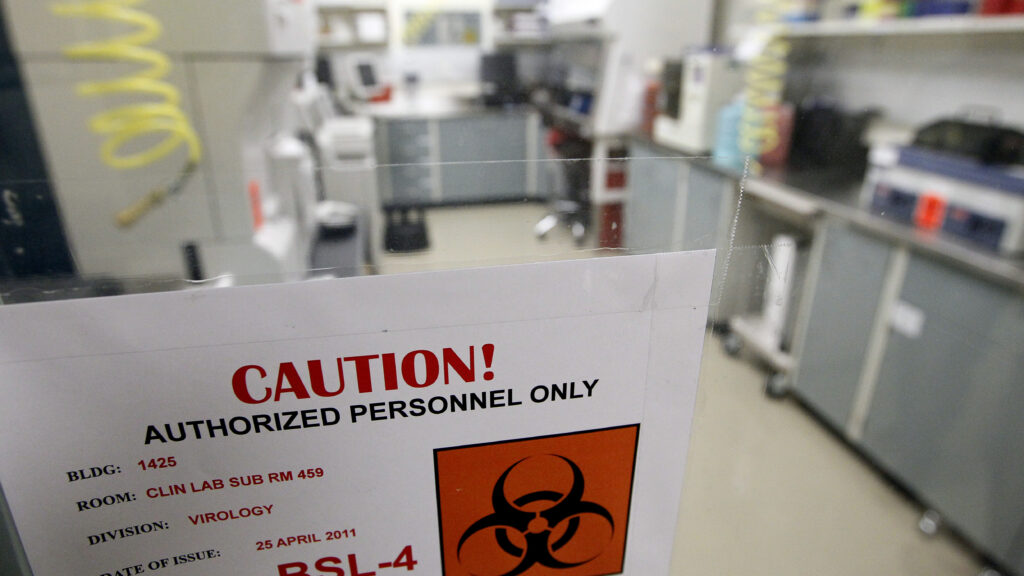Health
NIH Halts Tuberculosis Research, Claims Risk of ‘Dangerous’ Practices

On July 11, 2023, the National Institutes of Health (NIH) issued a letter to Dr. Sarah Stanley, an associate professor at the University of California, Berkeley, instructing her to cease research on Mycobacterium tuberculosis, the bacterium responsible for tuberculosis (TB). The NIH classified the work as potentially “dangerous,” a designation that Dr. Stanley disputes, arguing that her research is vital for understanding and combating TB.
Dr. Stanley has been conducting research for over a decade without incident, receiving support through two NIH grants. She emphasizes that halting this research could hinder progress towards developing new therapies, especially as TB remains a significant global health threat. While many in developed countries perceive TB as a relic of the past, it still claims more lives than any other infectious disease worldwide, exacerbated by increasing drug resistance.
The recent outbreak in Kansas City, which saw more than 100 cases — the largest in the U.S. in decades — serves as a stark reminder of the ongoing risk posed by TB, even in developed nations. Dr. Stanley highlights that the research methods flagged by the NIH are common practices in TB research, aimed at finding weaknesses in the bacterium rather than enhancing its virulence.
Understanding Gain-of-Function Research
The term “gain-of-function” has been politicized and misunderstood, creating confusion around its implications. Gain-of-function research broadly involves genetically modifying organisms to explore new capabilities. In Dr. Stanley’s case, her work includes creating genetic mutations to diminish the virulence of M. tuberculosis, contradicting the notion that her research could be dangerous.
Dr. Stanley asserts that her research techniques, which include using kanamycin resistance as a molecular marker, are essential to identifying modified strains of the bacterium. Kanamycin is not used in human treatment due to severe side effects, and her research does not pose a public health risk. She argues that the practices flagged by the NIH adhere to established safety protocols and have undergone thorough review by institutional committees.
In her laboratory, strict safety measures are in place, including the use of protective equipment, biosafety cabinets, and specialized ventilation systems. These protocols are designed to prevent any potential release of pathogens, ensuring that the research is conducted safely.
The Need for Clear Guidelines
Despite the NIH’s concerns, Dr. Stanley advocates for a more nuanced approach to regulating gain-of-function research. She emphasizes that clear definitions and scientific expertise are crucial in distinguishing between research that presents low risk and that which poses genuine threats. An overly broad interpretation of what constitutes dangerous research could stifle advancements in public health, especially in the fight against diseases like TB.
The NIH’s action follows a May executive order from the President aimed at halting “dangerous gain-of-function research.” Dr. Stanley supports rigorous safety measures but insists that the criteria for what is deemed dangerous must be transparent and scientifically informed.
As discussions continue around the proposed “Risky Research Review Act,” which could further restrict research activities, Dr. Stanley warns that the unintended consequences could pose a greater threat to public health than the research itself. She calls for a balanced approach that promotes scientific inquiry while ensuring safety, ultimately benefiting global health efforts against TB and other infectious diseases.
Dr. Sarah Stanley is an advocate for responsible research practices that do not compromise the pursuit of knowledge or public health. Her work and the ongoing discourse surrounding it highlight the delicate balance between safety and scientific advancement in the realm of infectious disease research.
-

 Technology5 months ago
Technology5 months agoDiscover the Top 10 Calorie Counting Apps of 2025
-

 Health3 months ago
Health3 months agoBella Hadid Shares Health Update After Treatment for Lyme Disease
-

 Health3 months ago
Health3 months agoErin Bates Shares Recovery Update Following Sepsis Complications
-

 Technology6 days ago
Technology6 days agoOpenAI to Implement Age Verification for ChatGPT by December 2025
-

 Technology4 months ago
Technology4 months agoDiscover How to Reverse Image Search Using ChatGPT Effortlessly
-

 Technology3 months ago
Technology3 months agoElectric Moto Influencer Surronster Arrested in Tijuana
-

 Technology1 month ago
Technology1 month agoDiscover 2025’s Top GPUs for Exceptional 4K Gaming Performance
-

 Technology5 months ago
Technology5 months agoMeta Initiates $60B AI Data Center Expansion, Starting in Ohio
-

 Technology5 months ago
Technology5 months agoRecovering a Suspended TikTok Account: A Step-by-Step Guide
-

 Health5 months ago
Health5 months agoTested: Rab Firewall Mountain Jacket Survives Harsh Conditions
-

 Health3 months ago
Health3 months agoAnalysts Project Stronger Growth for Apple’s iPhone 17 Lineup
-

 Lifestyle5 months ago
Lifestyle5 months agoBelton Family Reunites After Daughter Survives Hill Country Floods





















